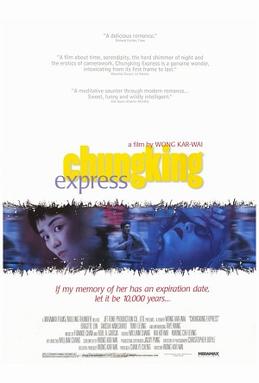 |
| Leon Lai and Karen Mok in Fallen Angels |
The Killer's Agent: Michelle Reis
Ho Chi-mo / He Zhiwu: Takeshi Kaneshiro
Charlie / Cherry: Charlie Yeung
Punkie / Blondie / Baby: Karen Mok
Ho Chi-mo's Father: Chan Man-lei
Director: Wong Kar-wai
Screenplay: Wong Kar-wai
Cinematography: Christopher Doyle
Production design: William Chang
Feverish, fascinating, and violently funny, Fallen Angels is a kind of companion piece to Wong Kar-wai's Chungking Express (1994), sharing some of the same setting and, in a very different role, the actor Takeshi Kaneshiro. I'm not steeped enough in Asian pop culture to appreciate it as fully as some, but I found its frantic camera tricks and frequently over-the-top acting somewhere between tiring and tonic. I'm glad I saw it, but I'm more glad that Wong showed us that he could move on from the frenzied youth culture of these early films to the mature brilliance of In the Mood for Love (2000).
Watched on Filmstruck Criterion Channel
